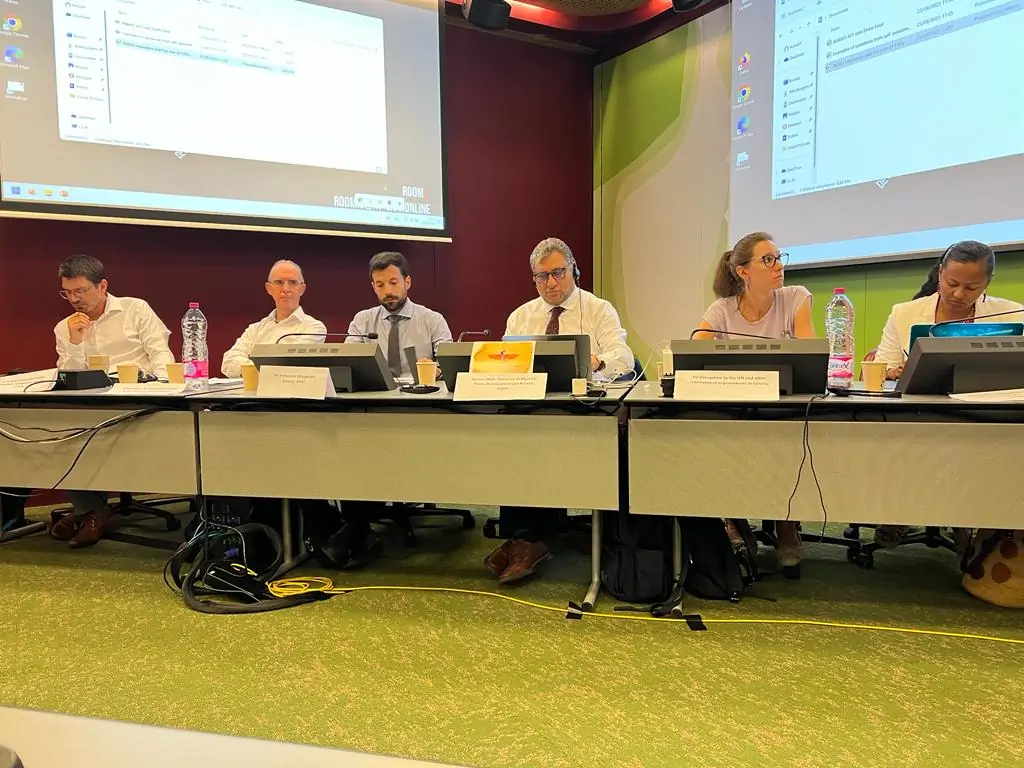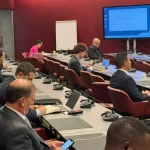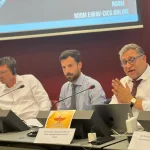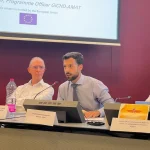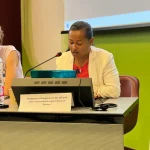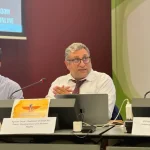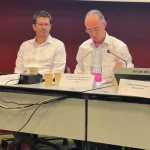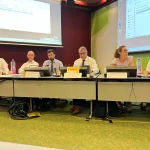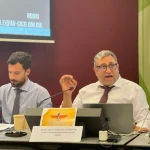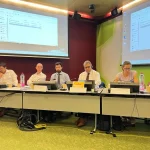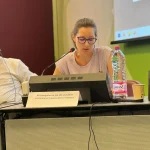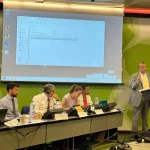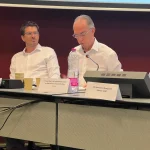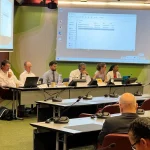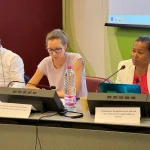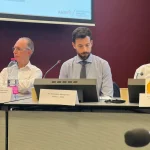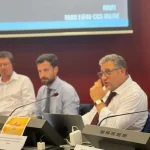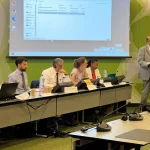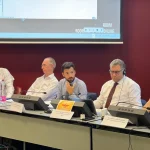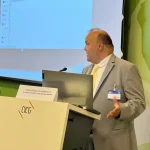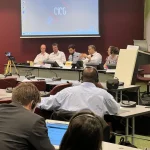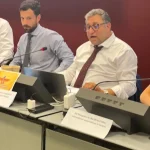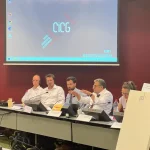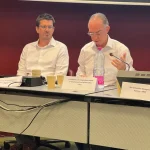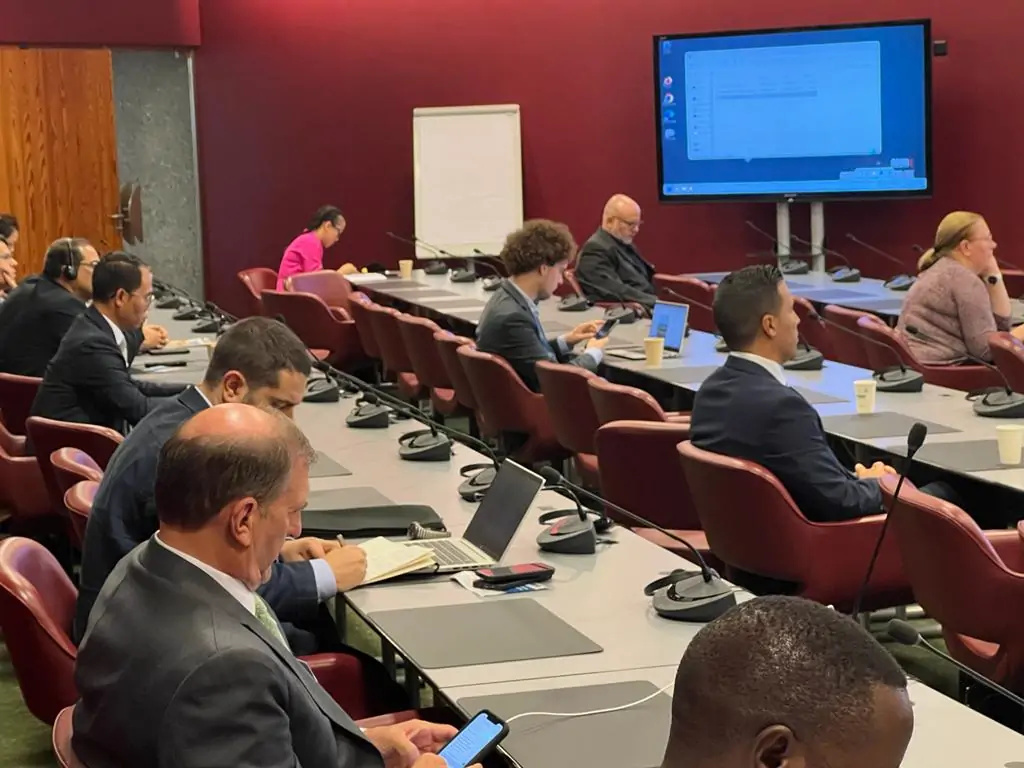In the presence of the representative of the European Union and a number of representatives of international missions,
Maat organizes a symposium in Geneva on the occasion of the tenth anniversary of the Arms Trade Treaty
Maat for Peace, Development and Human Rights organized a symposium entitled "Challenges Facing Effective Implementation of the ATT: 10 Years Later", in cooperation with the Global Coalition for the Limitation of Armaments and the Network of Independent Commission for Human Rights in North Africa at the headquarters of the International Conference Center in Geneva, in the presence of the representative of the European Union and the Madagascar Permanent Mission to the United Nations, in addition to a number of international organizations and experts interested in disarmament issues, on the sidelines of the Ninth Conference of States Parties (CSP9) to the Arms Trade Treaty (ATT), held from 21 to 25 August 2023 at the United Nations Headquarters in Geneva.
The symposium addressed the challenges that prevent the implementation of the ATT, such as member states’ lack of commitment to the Treaty, lack of data and information on arms trade and involved parties, after ten years of its entry into force, as well as the lack of international cooperation, especially in terms of illicit arms transfers, which mainly targets armed conflicts, and are carried out by private military and security companies (PMSCs).
During the symposium, Ayman Okeil, an international human rights expert and Chairman of Maat, said that failure of many countries to adhere to the provisions of the Treaty that regulates arms export and import operations, especially those participating in armed conflicts, led to an increase in the stock of weapons and ammunition and control of some armed militias over most of the stores of the regular armies. A number of countries deliberately exported weapons to countries such as Libya, Yemen and Somalia, despite Security Council resolutions banning the supply of weapons to these countries or any party involved in these conflicts, Okeil added. As to preventing the diversion of weapons, Okeil indicated that smuggling Iranian weapons to the Houthi group made Yemen the largest country in the Middle East region that is exposed to the catastrophe of the proliferation of mines, which poses a sustainable threat to the lives of civilians.
The human rights expert concluded his statement by saying that the aim of the "Let's Keep Weapons Safe" campaign, launched by Maat, is to effectively enhance global peace and security, reduce the spread of illicit arms, contribute to achieving the goals of the Treaty and ensure its comprehensive and effective implementation to protect civilians.
For his part, Naji Moulay Lahsen, Executive Director of the Network of the Independent Commission of Human Rights in North Africa, explained the challenges facing the implementation of the Arms Trade Treaty, such as the lack of data on the arms trade and the parties involved, as well as the lack of international cooperation, especially with regard to illicit arms transfers that are mainly targeted to areas of armed conflicts, and which are carried out by PMSCs. Al-Hassan added that countries should encourage the regular and structured exchange of information and improve their capacities to collect and analyze relevant data. This can be achieved through cooperation with the relevant authorities and promoting modern techniques and tools for data collection.
The European Union representative, Ms. Natalia Krulak, referred in her speech to the direct and indirect coordination of the procedures of the European Union member states in relation to the ATT, to which all of them have become parties, by coordinating important aspects of the actual implementation of the ATT at the level of the European Union, while Tatiana Eddie Razafindravao, Deputy Permanent Representative at Permanent Mission of Madagascar, Geneva, stressed the importance of working and supporting the efforts of CSOs within the framework of the ATT. The Mission of Madagascar promotes methodologies to work on the Treaty by involving CSOs in providing advice and guidance in the implementation of the Treaty.
The independent expert on international security issues, Mr. Marc Fino, gave a comprehensive overview of the ATT and stated that the Treaty is successful, especially in terms of the number of state parties it has attracted in less than 10 years. However, major countries non-adherence thereto may weaken the implementation thereof.
Dr. Antoine Perret, Director of the Civil Society Organizations Unit in the International Code of Conduct, spoke about the list of PMSCs and the role of civil society organizations in combating illicit arms trafficking, and stressed the need for an international legal framework regulating PMSCs. During his speech, Antoine emphasized the importance of the role of civil society organizations in building capacities, analyzing data, providing technical support to governments, advocacy, and creating a complaints and accountability mechanism.
During the symposium, Nadim Amer, Programme Officer in the Ammunition Management Advisory Team (AMAT), presented a background on their work in supporting countries through the project of the validation system for the management of weapons and ammunition with European Union experts, by developing tools that help countries in the effective implementation of the Treaty.
In conclusion, the symposium concluded with a set of recommendations, including the inclusion of strict international rules on brokering and the criminalization of violators of these rules, the need to draw a distinction between the arms trade and the transfer of weapons in the form of donations and aid, the need to codify procedures through which weapons can be prevented from being diverted to black markets, the need to address the loopholes that allow weapons fall into the hands of non-governmental organizations, including terrorist and criminal organizations, and the need to develop legal texts binding on all countries clarifying the procedures and measures necessary for the transit of weapons.


